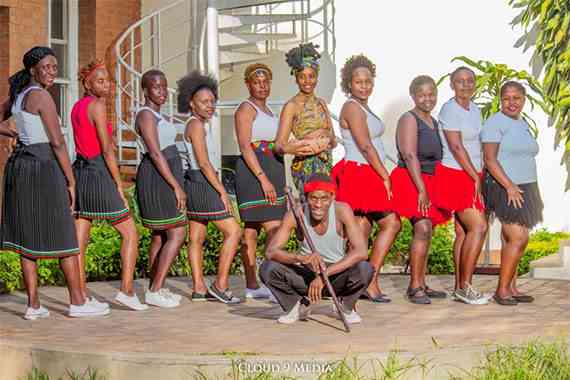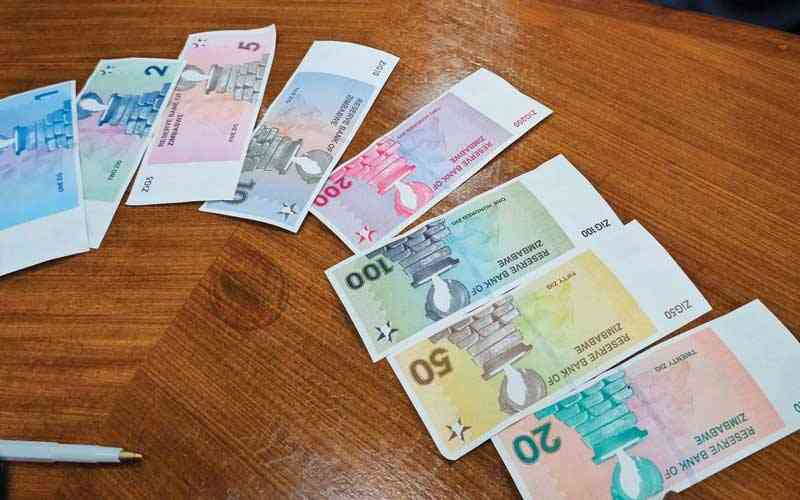
DEAF Arts National Culture Entertainment (DANCE) is raising awareness about the challenges faced by the Deaf community in accessing healthcare with their project "Celebrating Deaf Culture: A Theatrical Journey of Inclusion and Empowerment."
Funded by the European Union and Culture Fund Zimbabwe, the project involves a 20-member Deaf artist troupe performing a play called Miscommunication and showcasing their talents through dance. The play highlights the difficulties the Deaf community encounters when seeking medical attention due to a shortage of qualified sign language interpreters. This lack of communication often leads to misunderstandings and inadequate medical care.
DANCE aims to raise public awareness and advocate for better healthcare access for the deaf community by touring different parts of Zimbabwe with their play and performances. Supported by 10 sign language interpreters, the artists will share their experiences and perspectives, challenging societal barriers and promoting inclusion.
This project emphasizes the importance of communication and its crucial role in ensuring equal access to basic human rights like healthcare. By spotlighting the struggles and talents of the deaf community, DANCE hopes to inspire positive change and empower the deaf to advocate for themselves.
Tsungirirai Tsikira, a representative from DANCE, emphasized that the play "Miscommunication" sheds light on the significant obstacles the deaf community faces when seeking healthcare, a basic human right, due to the scarcity of qualified sign language interpreters. This lack of communication creates a barrier to proper medical care and often leads to misunderstandings and inadequate treatment.
“Deaf Arts, an artistic collective composed of deaf individuals, reflects on their journey with awe and wonder. Despite the barriers and obstacles they have faced, they have been able to transcend the boundaries of their disability and create meaningful art,” she said.
“They have forged connections with others, both deaf and hearing, and have left a lasting legacy through their unique and powerful artistry. Deaf Arts is a testament to the power of creativity and the resilience of the human spirit,” added Tsikira.
Tsikira said the group recently showcased their talent at the just ended Shangano Arts Festival which was held in Hwange.
- CCC urged to push for dialogue over reforms
- A peep into Matenganyika’s artistic closets
- The Bioskop Short Film Competition is back
- Mangwe farmers benefit from agric projects
Keep Reading
“Deaf Arts' participation at the Shangano Arts Festival was not just a performance; it was a testament to unity, growth, and empowerment through art, showcasing the transformative power of inclusivity on a global stage.
“They performed at the 17th edition of the Shangano Arts Festival, leaving an indelible mark on both the festival and its attendees. Throughout this artistic journey, Deaf Arts demonstrated unwavering commitment and passion for their craft.
“Under the late Cont Mhlanga’s widow Thembekile Ngwabi as their director and their dances choreographed by Anorld Ndebele of award winning Sekunjalo MaAfrica, the group diligently prepared for an unforgettable performance that resonated deeply with audiences,” she said.
She added that beyond their captivating performance, the group actively engaged in educational workshops focusing on business management and censorship, emphasising their dedication to continuous learning and growth within the arts.
“The Hwange Little Theatre bore witness to the group's transformative artistry, as their performance moved and mesmerised spectators, showcasing the universal language of emotions through their Deaf-led narrative.
“The performances were done in Zimbabwe sign language and interpreted into other vocal languages by interpreters from Sign Language Interpreter Trust who are the “voice and the ear of the deaf”. Performances from other artists who graced the occasion were also interpreted vice versa from spoken languages to ZSL for the benefit of the deaf audience.
“The success of this journey was made possible through the generous support of sponsors such as Culture Fund and the European Union Delegation to Zimbabwe as well as Chicken Inn Hwange, Simbisa Brand, Zimparks and Barberton Gym. Their unwavering support ensured a seamless and fulfilling experience for the group, “she added.
Tsikira said this is in line with the government's vision of inclusivity in the arts and found resonance in Deaf Arts' participation, aligning seamlessly with Vision 2030 and policies aimed at leaving no one behind.










